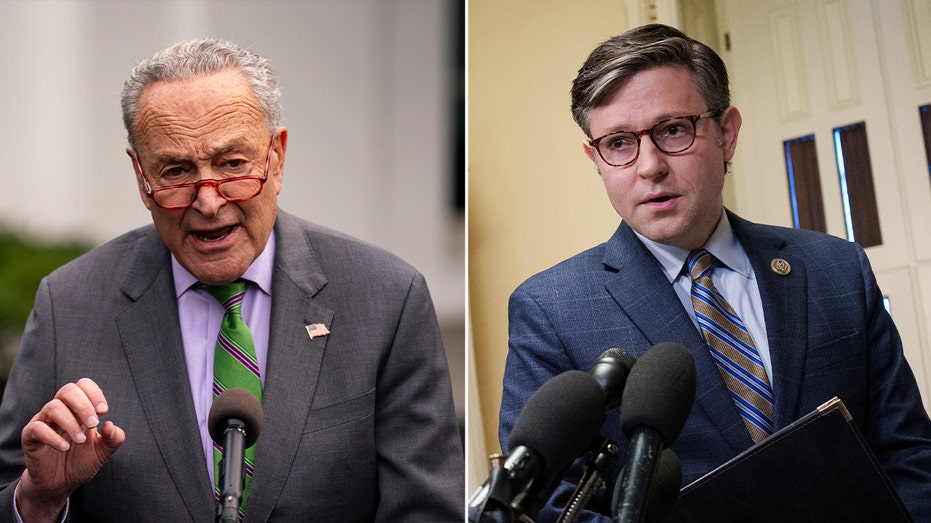Concerns about a partial government shutdown are growing more realistic as Congress finishes another week just as far apart on federal spending as they were at the beginning of the fiscal year on Oct. 1.
Lawmakers narrowly avoided shutting down the government on Sept. 30 when the House and Senate both rushed to pass a temporary extension of the previous year’s funding priorities, known as a continuing resolution (CR). That measure expires Nov. 17.
Each chamber of Congress took steps to advance government funding in its own way. The House passed two more appropriations bills for a total of seven out of 12 done, while the Senate passed its first three in a combined “minibus” bill.
But that’s where the problems are expected to begin. The Senate and House are at least $120 billion apart in how much they want to spend on government funding as a whole.
SPEAKER JOHNSON DRAWS BATTLE LINES AHEAD OF GOVERNMENT SPENDING SHOWDOWN
The upper chamber is working toward a topline set in the bipartisan deal to raise the debt limit earlier this year. House conservatives, meanwhile, have pushed their chamber for deeper cuts.
Moreover, House Speaker Mike Johnson, R-La., told Fox News Digital last week that the House and Senate would be at an “impasse” if Majority Leader Chuck Schumer, D-N.Y., pushed the House to take up his minibuses or an omnibus with all 12 bills.
There is little chance of the two chambers coming to an agreement by Nov. 17, meaning a new CR will likely be needed.
GOP REBELS’ FAITH IN SPEAKER JOHNSON ON SPENDING FIGHT COULD AVERT GOVERNMENT SHUTDOWN
Johnson suggested a “laddered” CR approach might be needed. When Congress passes one of its 12 spending bills, agencies and departments covered by that bill would be funded at that new level. Until then, they would remain at the previous year’s spending levels.
Rep. Chip Roy, R-Texas, explained when asked by Fox News Digital on Friday, “What we really mean is, have certain elements expire at a certain date, certain elements expire at a different date.”
“The reason is trying to force action in this time, right? If we just kick the can down the road and we do a CR to — pick a number, March 31, or something — what the hell do you think these guys are going to do? They’re going to sit around and not do stuff. And they’ll wait until March 20 and try to do pressure politics,” Roy said.
House Minority Leader Hakeem Jeffries, D-N.Y., tore into the idea at a Friday press conference.
SENATE PASSES STOPGAP MEASURE IN 88-9 VOTE, AVERTING SHUTDOWN WITH THREE HOURS TO SPARE
“This notion of a so-called laddered CR… the novelty of my friends on the other side of the aisle in terms of how they come up with language that disguise their intention,” Jeffries said. “Translation, they want to shut the government down because many of my Republican colleagues fundamentally do not believe in a functional federal government.”
But lawmakers on both sides of the aisle told Fox News Digital they were optimistic that Congress would again avoid a shutdown.
“I’m optimistic that we’re not going to; I think that the public will blame Republicans. In my time here, they’ve always blamed Republicans for the government shutting down,” said Rep. Richard Neal, D-Mass., the top Democrat on the House Ways & Means Committee. “And I think Republicans that have been here for a while, they know that.”
Main Street Caucus Vice Chair Stephanie Bice, R-Okla., said Congress would avoid a shutdown because the House GOP “is looking at putting something together that will avoid that, but also achieve some of the objectives that we’ve been looking at as a conference, including reducing spending.”
























